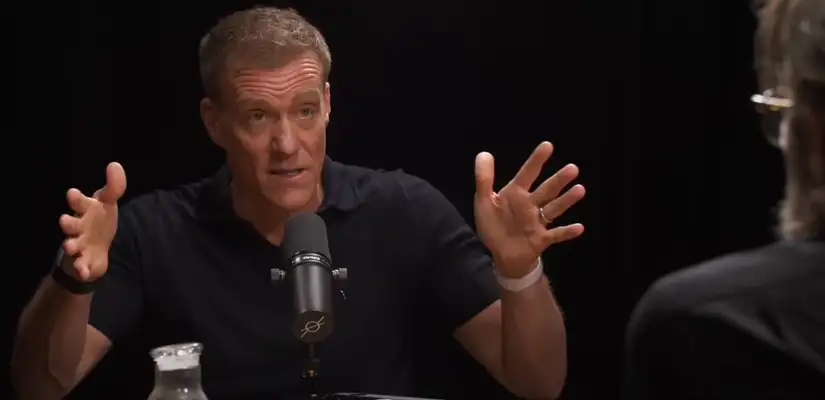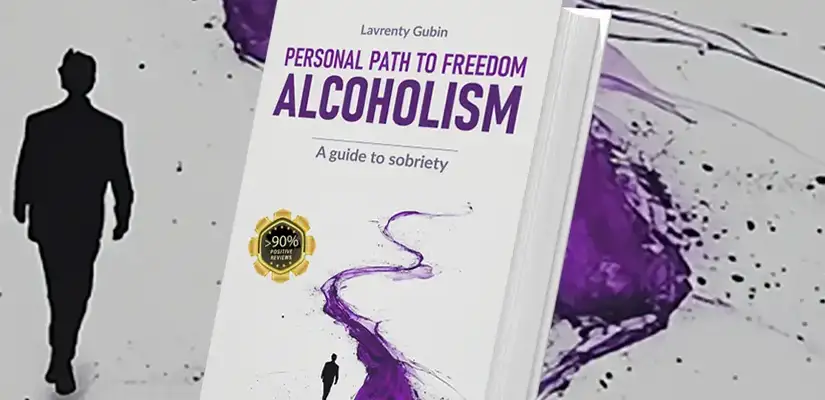Is Alcoholism an Incurable Disease?
This excerpt from the book "Personal Path to Freedom. Alcoholism" discusses how the myth that alcohol addiction is incurable got so widespread.

It is often claimed that alcoholism is an incurable disease. All treatment can do is sustain remission, ideally for life.
Now, if you switch on your logic and really think about this statement, then one quite simple question should arise – what’s the difference between recovery and life-long remission? Health professionals would say that even after complete remission (in other words, absolute absence of symptoms), some trace of the disease may remain, for example, chromosomal alterations. However, somebody who has achieved complete remission will not present any outward signs of alcoholism. Yes, chronic intoxication can lead to some irreversible changes in your body. Still, these are not the consequence of alcoholism itself but those of diseases triggered by it.
Surprising as it may be, compared to other drugs, today’s medicine has not thoroughly studied the biochemistry of alcohol intoxication. There are ongoing debates and emerging theories about the impact of ethanol on the central nervous system and how alcohol addiction emerges. Isn’t it curious that this extremely addictive substance that poisons hundreds of millions (if not billions) of people around the world is so poorly explored?
I have a strong feeling that some common misconceptions about alcohol abuse and ethanol are intentionally popularised and supported in the public consciousness with one expressed aim – to programme humankind towards more consumption and thereby to prevent it from quitting drinking completely.
No doubt, addicts, especially alcoholics, have made many such false statements in an attempt to justify their addictive behaviour. Most of the people who consume poisonous substances that affect their mental state fail to make the one central step towards sobriety – they never admit their addiction. Moreover, they will defend their bad habits and find all kinds of excuses, including claiming positive impacts of their poisoning. You might even think that it was alcoholics themselves who made up the notion that alcoholism is incurable, driven by their weakness or reluctance to quit.
Moreover, if a person is aware of their addiction and sincerely willing to quit, what’s the point of saying alcoholism is incurable? This only leads them to believe that their addiction is, in fact, under the control of some third party. The alcoholic will be convinced that now they’ve been an alcoholic once, they will always be one. The only thing left to do between now and the day they die is to restrain the disease and avoid its aggravation. This kind of life will, of course, be a complete nightmare. Any internal processes, especially cognitive and emotional ones, only exacerbate themselves if you pay more attention to them. Like it or not, if you are convinced you have an incurable disease, you’re only going to keep on fixating on this fact. You’ll succumb to extreme internal stress as the contradiction between reality and the ever-growing fictitious illness in your head boils over into psychological issues and breakdowns.
Some say that it’s the medical community who labelled alcoholism as incurable since, in the vast majority of cases, doctors don’t manage to cure alcoholics. And, thus at the end of the day, failure to treat an alcoholic can always be explained by the incurability of the condition. A doctor specialising in this area will thus be in a win-win situation – if their patient goes sober, otherwise called sustained remission, the doctor will be praised for their success. And if the addict does not recover, it’s not the doctor’s failure because the patient’s disease is incurable and beyond medical assistance. I’m not saying that all health professionals who work with alcoholics use this subterfuge for personal gain. Indeed, I’m aware of many doctors’ unselfish commitment to helping people by any means available.
If there are cases, no matter how rare, of people reaching full sobriety after years of alcoholism, then you can’t call the disease incurable – otherwise, you destroy hope for every suffering alcoholic. Difficult to cure – maybe; high likelihood of unfavourable progress – maybe; but incurable – definitely not! In reality, it is quite easy to overcome alcohol addiction if you know how. And it is still an open question whether alcoholism is a disease or just a gross destructive habit.
Based on my personal experience, I believe that alcoholism is a severe psychological disorder that damages both one’s body and one’s mind.
The problem is that when a person drinks a lot, they lose their natural, inborn ability to live a non-alcoholic life. And if they manage, one way or another, to overcome their physical addiction to alcohol, they often no longer remember how to live a life without alcohol and find it hard to regain this skill. Therefore, it’s highly likely they will return to their habitual lifestyle where alcohol acts as a kind of familiar scaffolding.
However, with the right approach not only to the process of getting rid of addiction, but also to restoring the skill of sobriety, complete freedom from alcohol is achievable.
You might think it's photoshopped, but these are two different photos of me taken a year apart. On the left is me when I was drinking, on the right is me after seven months of sobriety. First of all, giving up alcohol helps to normalize your weight.
This excerpt from the book "Personal Path to Freedom. Alcoholism" discusses how the myth that alcohol addiction is incurable got so widespread.













